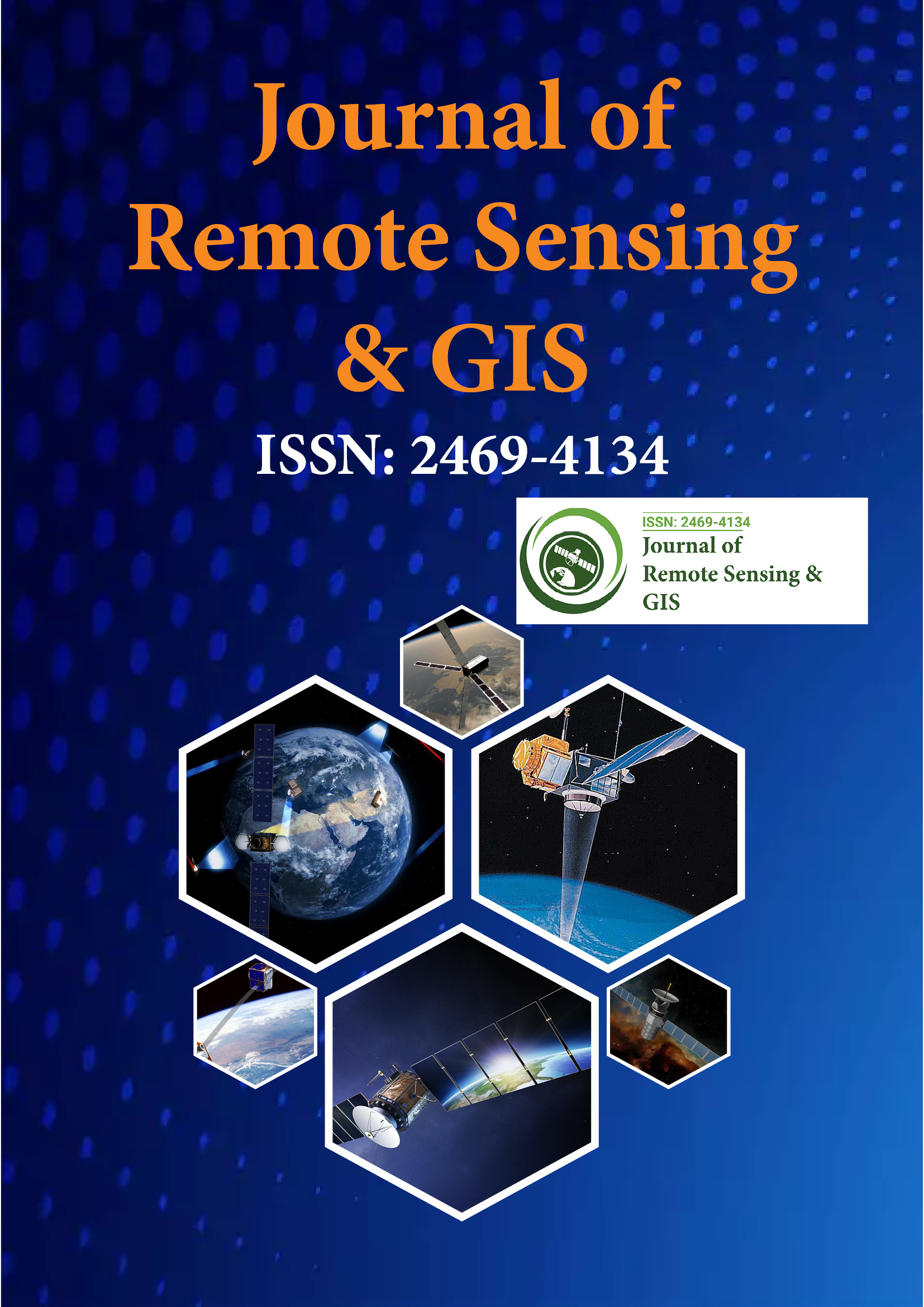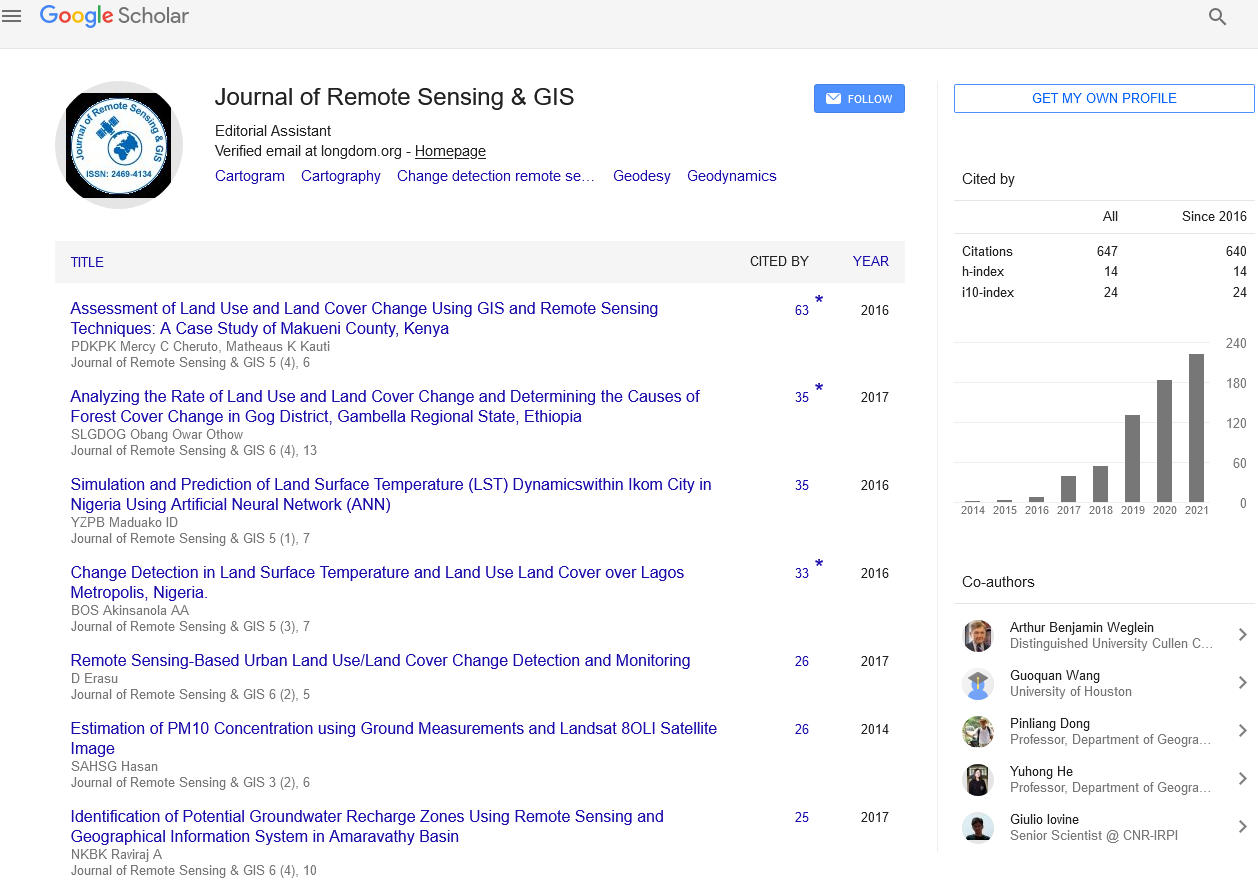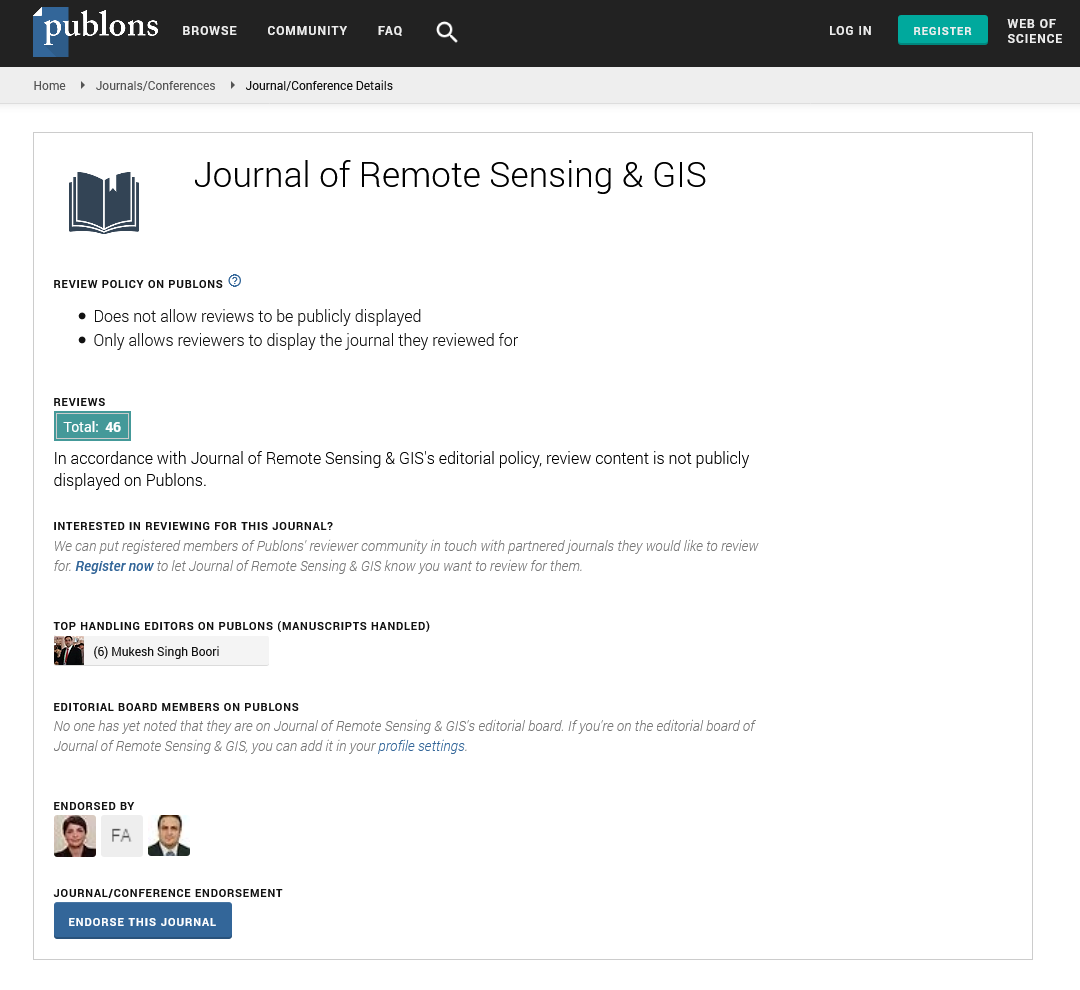Indexed In
- Open J Gate
- RefSeek
- Hamdard University
- EBSCO A-Z
- OCLC- WorldCat
- Publons
- International Scientific Indexing
- Euro Pub
- Google Scholar
Useful Links
Share This Page
Journal Flyer

Open Access Journals
- Agri and Aquaculture
- Biochemistry
- Bioinformatics & Systems Biology
- Business & Management
- Chemistry
- Clinical Sciences
- Engineering
- Food & Nutrition
- General Science
- Genetics & Molecular Biology
- Immunology & Microbiology
- Medical Sciences
- Neuroscience & Psychology
- Nursing & Health Care
- Pharmaceutical Sciences
Multiscale geoscene analysis using VHR remote sensing images: application to urban functional mapping
2nd International Conference on GIS and Remote Sensing
October 02-03, 2017 Vienna, Austria
Shihong Du
Peking University, China
Keynote: J Remote Sensing & GIS
Abstract:
Statement of the Problem: Landscape zones are heterogeneous geographic areas characterized by diverse interacting objects, ranging from relatively natural systems to human-dominated environments. However, existing geographic object-based image analysis (GEOBIA) is good at dealing with object individuals but weak in analyzing landscape zones. Accordingly, this study aims to present a novel and generic concept �??geoscene�?� to represent landscape zones and lay the foundation for studying their patterns and functions. Geoscene are spatially continuous and non-overlapping regions in remote sensing images, with each geoscene composed of diverse objects (e.g., buildings, vegetation, and waters). Methodology & Theoretical Orientation: To investigate urban landscapes with geoscenes, we presented the techniques for geoscene analysis in this study: geoscene segmentation and classification. First, a multiscale segmentation method is proposed to delineate geoscenes from satellite images by considering the internal object categories and their spatial patterns. Second, the generated geoscenes are classified with each geoscene labeled by a landscape functional category. Findings: The presented method is effective to generate geoscenes and can well represent landscape zones and their spatial distributions at multiple scales. Conclusion & Significance: As a new kind of spatial units, the proposed geoscenes can effectively represent landscape zones and further contribute to the studies for landscape patterns and functions. Accordingly, geoscene analysis is an important complement to classical GEOBIA in landscape studies.
Biography :
Shihong Du received BS and MS degrees in Cartography and Geographic Information System from the Wuhan University, Hubei, China, and the PhD degree in Cartography and Geographic Information System from the Institute of Remote Sensing Applications, Chinese Academy of Sciences, Beijing, China, in 1998, 2001, and 2004, respectively. He is currently an Associate Professor with the Peking University, Beijing, China. His research interests include qualitative knowledge representation, reasoning and its applications, and semantic understanding of spatial data including GIS and remote sensing data.


